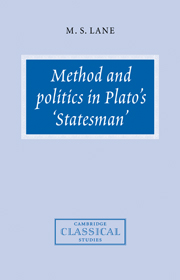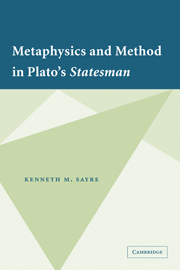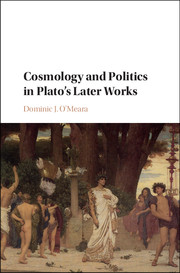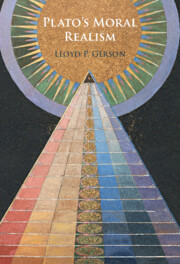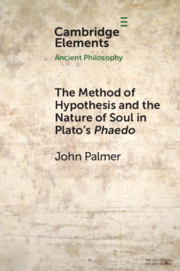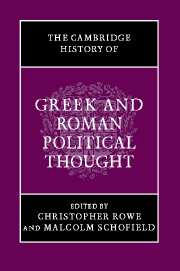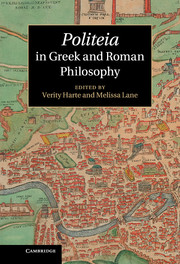Method and Politics in Plato's Statesman
Among Plato's works, the Statesman is usually seen as transitional between the Republic and the Laws. This book argues that the dialogue deserves a special place of its own. Whereas Plato is usually thought of as defending unchanging knowledge, Dr Lane demonstrates how, by placing change at the heart of political affairs, Plato reconceives the link between knowledge and authority. The statesman is shown to master the timing of affairs of state, and to use this expertise in managing the conflict of opposed civic factions. To this political argument corresponds a methodological approach which is seen to rely not only on the familiar method of 'division', but equally on the unfamiliar centrality of the use of 'example'. The demonstration that method and politics are interrelated transforms our understanding of the Statesman and its fellow dialogues.
- Throws light on Plato's methods of argument
- Important for political theory
- Draws on both ancient and modern philosophy
Product details
June 2007Paperback
9780521036870
244 pages
216 × 143 × 15 mm
0.33kg
Available
Table of Contents
- Acknowledgements
- Abbreviations and note on text
- Introduction: method and politics in Plato's Statesman
- Part I. Method:
- 1. Introduction
- 2. The Sophist's use of example and division
- 3. The Statesman's use of example and division
- 4. The analysis of example
- 5. Conclusions
- Part II. The Story as a Fulcrum of the Dialogue:
- 6. Introduction: story-telling and self-criticism
- 7. Telling the story
- 8. Criticising the story
- Part III. Politics:
- 9. Introduction
- 10. Rivalry revisited: subordination of the arts to the mastery of the kairos
- 11. Rivalry renewed: the challenge and subordination of law
- 12. Political knowledge as weaving
- 13. Conclusions
- Select bibliography
- General index
- Index locorum.

